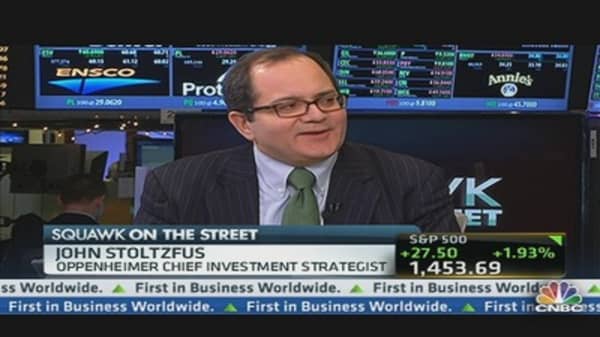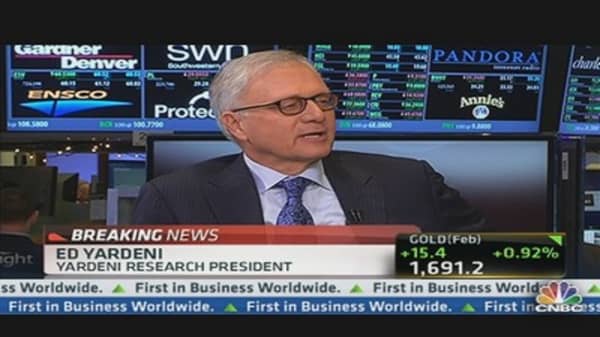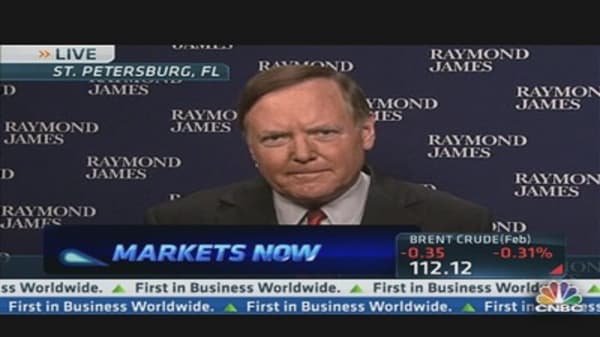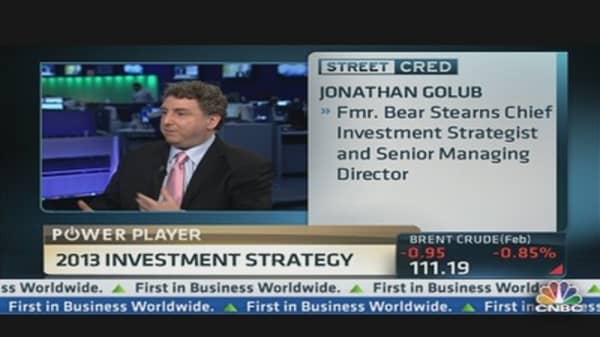The New Year started off with a bang for the equity markets, as investors breathed a sigh of relief that Washington reached a deal on taxes to avert going off the "fiscal cliff" and as new money poured into the market.
After a 13 percent gain for the S&P 500 in 2012, strategists generally remain bullish on equities this year on expectations the economy continues to improve.
A rebounding U.S. economy supports the case for equities in 2013, John Stoltzfus, Oppenheimer chief investment strategist, told CNBC this week. He ticked off a list of positives, including housing, auto sales, manufacturing, services and "decidedly supportive" monetary policy that make the current economic recovery "likely quite sustainable."







